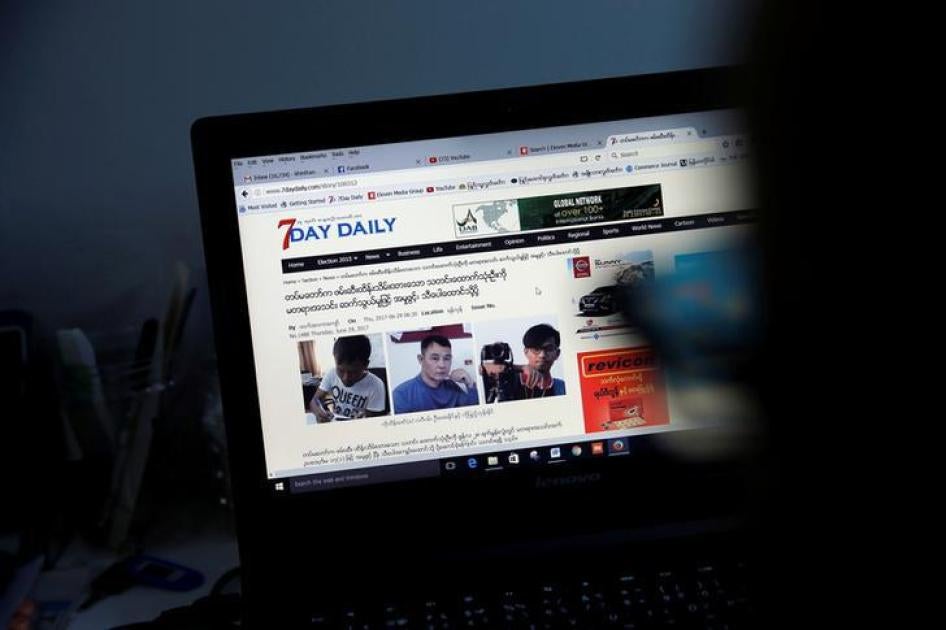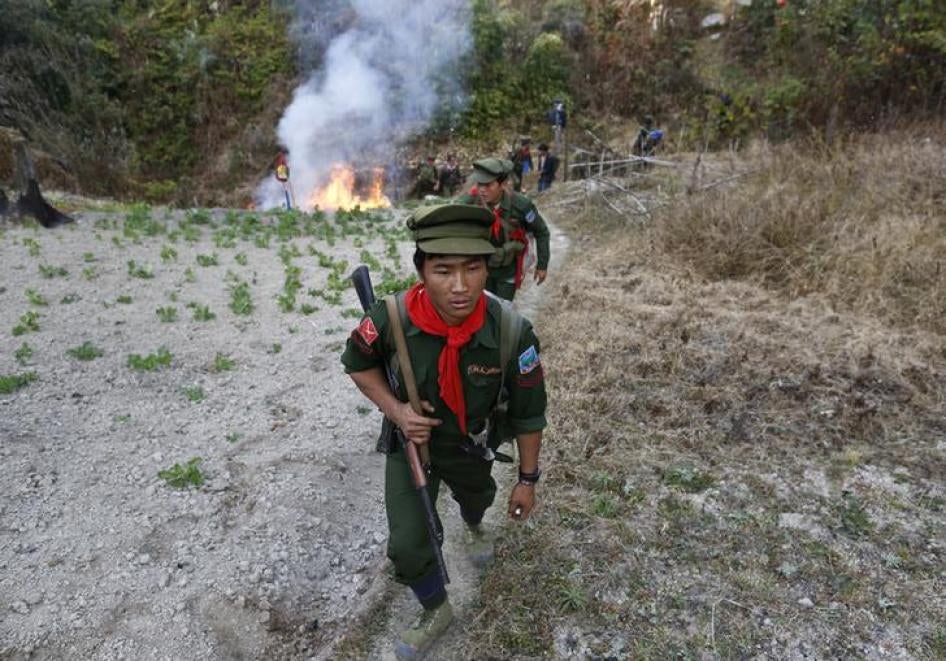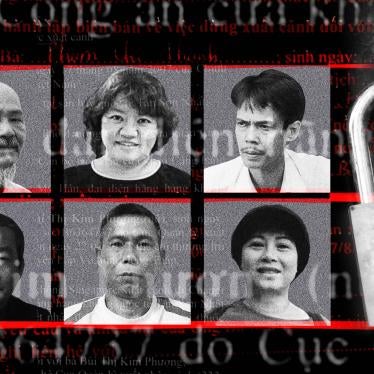(Bangkok) – Burmese authorities should immediately drop charges against three journalists for news gathering at a public event organized by the Ta’ang National Liberation Army (TNLA) in northern Shan State, Human Rights Watch said today.
On June 26, 2017, the Burmese military detained Aye Nai and Pyae Phone Naing from the Democratic Voice of Burma and Thein Zaw, also known as Lawi Weng, from The Irrawaddy after stopping their car as they returned from a TNLA drug-burning ceremony marking the United Nations International Day Against Drug Abuse and Illicit Trafficking. On June 28, the reporters were charged under section 17(1) of Burma’s colonial-era Unlawful Associations Act of 1908, local media reported. All three have been detained at Hsipaw prison in Shan State and are next scheduled to appear in court on July 11.
“It’s appalling that the Burmese authorities are charging journalists for simply doing their job,” said Phil Robertson, deputy Asia director. “Burma’s government, which consists of many former political prisoners held on similarly dubious grounds, should drop these charges immediately and ensure the three are released.”
During the nearly three days the military held the journalists without charge, their location was unknown. Four other people were reportedly also arrested and detained.
Section 17(1) of the Unlawful Associations Act carries a sentence of up to three years in prison for anyone who “is a member of an unlawful association, or takes part in meetings of any such association, or contributes or receives or solicits any contribution for the purpose of any such association, or in any way assists the operations of any such association.” This broadly worded provision has been routinely used for decades to punish people suspected of having any contact with an opposition armed group.
The TNLA is among more than a dozen ethnic minority armed groups that for decades have been fighting Burma’s central government, and has been designated an “unlawful armed group” by the Burmese authorities. While the TNLA is not a signatory to the Nationwide Ceasefire Agreement signed in October 2015, representatives of the armed group attended the second round of the Panglong Peace Conference held by the Burmese government in the capital, Naypyidaw, in May 2017.
Arresting journalists who are gathering news about an armed group is a serious blow to media freedom in Burma. While the government may place restrictions on the media for national security reasons, these restrictions must be strictly necessary for a legitimate purpose and not be overbroad. They may not be used to suppress or withhold information of legitimate public interest not harmful to national security, or to prosecute journalists for reporting such information.
For the government to fulfill this responsibility, journalists must be able to speak and meet with a variety of people without fear of arrest or harassment – including those who are in conflict with the government or military.
The arrest of the three journalists appears to conflict with Burma’s News Media Law. Section 7(a) of the law, in force since June 2015, states that a journalist “shall be exempt from being detained by a certain security related authority, or his/her equipment being confiscated or destroyed,” while gathering news in areas “where wars break out, and where conflicts or riots and demonstrations take place.”
“The Burmese military is using the Unlawful Associations Act to attack the country’s news providers,” Robertson said. “All charges under section 17(1) should be dropped and the provision rescinded so that journalists can accurately cover the country’s ethnic conflicts.”









